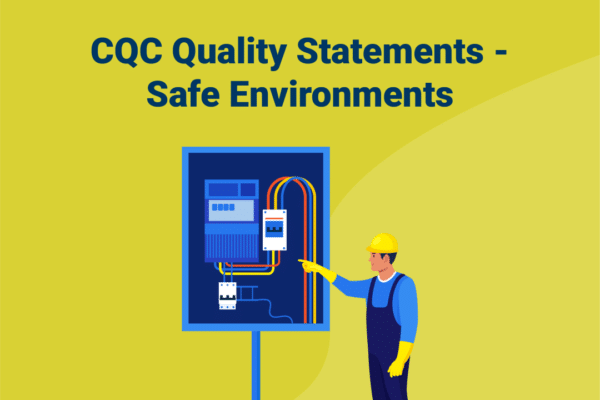Employment law specialist, Napthens has shared with us the 10 most common employment law questions they often come across. Did you have the same questions and need clarification? Read below!
And you want to share these with others? You can download the PDF for free here:
Download Now
See the 10 common employee law questions here:
Do I need to provide an employee/worker with any written terms and conditions?
Under Section 1 of the Employment Rights Act 1996, employees are entitled to a written statement of particulars, which sets out their terms of employment or engagement, on their first day of their employment or engagement. The statement must include:
- The employer’s name
- The employee’s or worker’s name, job title or a description of work and start date
- How much and how often an employee or worker will get paid
- Hours and days of work, and if and how they may vary (also if employees or workers will have to work Sundays, nights or overtime)
- Holiday entitlement (and if that includes public holidays)
- Where an employee or worker will be working and whether they might have to relocate
- If an employee or worker works in different places, where these will be and what the employer’s address is
- How long a job is expected to last (and what the end date is if it is a fixed-term contract)
- How long any probation period is and what its conditions are
- Any other benefits (for example, childcare vouchers and lunch); and
- Any obligatory training, and whether or not this is paid for by the employer
Can I require an employee to take annual leave?
Yes. You can require an employee to take annual leave on certain dates; however, you are required to provide the employee with twice the amount of notice as the number of holidays you require them to take. For example, if you require an employee to use 5 days of their holiday entitlement, you are required to provide them with 10 days’ notice.
What is the difference between conduct and capability?
Conduct relates to the manner in which a person behaves, e.g. if a person refuses to follow reasonable management instructions this may be considered to be misconduct.
Capability relates to a person’s ability to do something, e.g. a person may not have the necessary skills set or qualifications to carry out a specific role.
How do I manage an employee who has been on long-term sick leave?
You should keep in regular contact the employee to obtain an update on their illness. Employers have a duty of care towards their employees.
If necessary, you may want to arrange a meeting with the employee to better understand their illness; whether you can help support them and their likely return to work date. If the employee is unlikely to return to work in the near future, you may consider obtaining a medical report from either their GP or an independent Occupational Health adviser on their condition to better understand their prognosis; likely return to work date; and whether there are any reasonable adjustments that can be made in the workplace to facilitate an earlier return to work date.
Please refer to the Sickness Absence Policy and Procedure on the QCS Management System for further guidance.
How do I manage an employee who has failed to attend work?
In the first instance, you should try and contact your employee to ensure they are ok. If the employee does not have a reasonable explanation as to why they have failed to attend work, then they may be deemed to be absent without leave which would be a misconduct offence.
As such, you may proceed to take disciplinary action against the employee in accordance with the QCS Discipline Policy and Procedure.
Do I need a reason to dismiss an employee?
If the employee has been employed for 2 years or more, you need to ensure you have a fair reason AND follow a fair process in dismissing an employee.
The following are the only fair reasons for dismissing employees:
- Conduct – This is when an employee has done something that is inappropriate or not acceptable
- Capability – This is when the employee is not able to do their job or does not have the right qualifications
- Redundancy – This is when the job role is no longer needed
- Illegality – This is when the employee cannot do their job legally, e.g. they do not have the right to work in the UK
- Some other substantial reason
An employee who has less than two years’ service does not have the right to claim ordinary unfair dismissal. As such, you do not have to have a fair reason or follow a fair process to dismiss them. You should however always be conscious of any protected characteristics (age, sex, disability, race etc) and seek advice before dismissing.
Do I have to provide a reference for a former employee?
Generally speaking, under employment law you are not obliged to provide a reference for a former employee.
However, certain sectors and certain job roles do require former employers to provide a reference, Health and Social Care being one of them. If the employee works in a role which requires a reference to be given you must take reasonable care to ensure that the information you provide is fair and accurate, and not misleading.
Please refer to the References Policy and Procedure on the QCS Management System for further guidance.
An employee has made a complaint about another employee, how should I handle this?
In the first instance, you should meet with the employee to gather more information about their compliant and see if the matter can be resolved informally between the parties.
If the matter cannot be resolved informally, then you should follow the Grievances Policy and Procedure on the QCS Management System.
How many holidays is an employee legally entitled to?
An employee is legally entitled to a minimum 5.6 weeks of holiday entitlement per annum; this equates to 20 days plus the usual bank holidays in England and Wales. Employers are entitled to agree to provide more holidays, but must not provide fewer.
What are the maximum hours an employee can work and what breaks are they entitled to?
Under the Working Time Regulations 1996 (“WTR”), the maximum hours an adult can work is 48 hours per week (averaged over a 17-week reference period), unless the employee has signed an opt-out agreement.
An employee is also entitled to the following rest periods under the WTR:
- A 20-minute rest break during their shift, if the shift last more than 6 hours a day (this break does not have to be paid, unless it states otherwise in the employee’s employment contract)
- A right to 11 hours rest between working days e.g. if they finish work at 8am, they should not start work again until 7am
- An uninterrupted 24 hours without any work each week; and
- An uninterrupted 48 hours without any work each fortnight
Please note the above answers are not intended to be legal advice and if you have any questions or need specific advice in relation to any Employment law query, please contact a member of the Napthens Employment team who are able to offer 30 minutes of free advice to QCS members.






